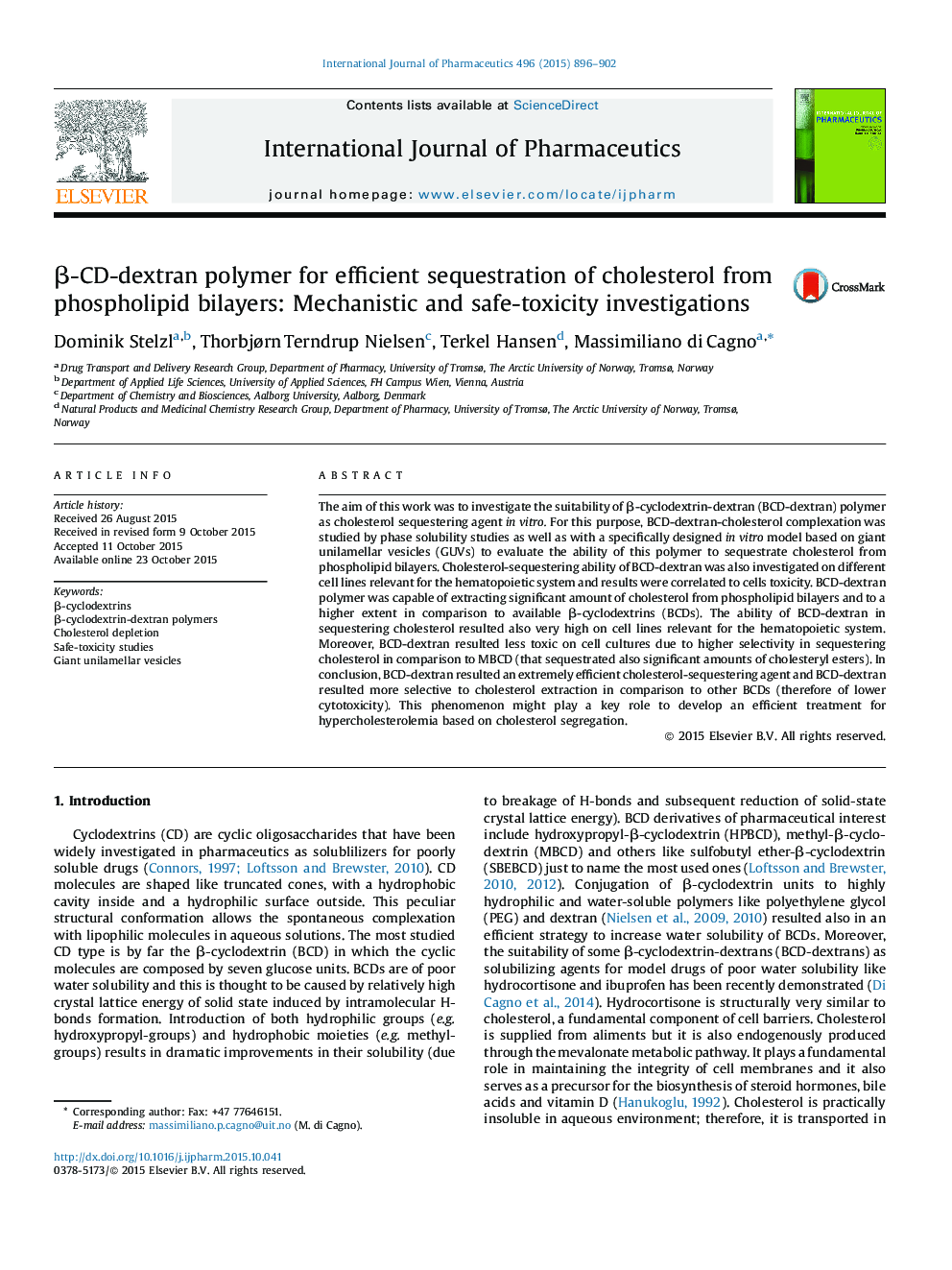| Article ID | Journal | Published Year | Pages | File Type |
|---|---|---|---|---|
| 5818292 | International Journal of Pharmaceutics | 2015 | 7 Pages |
The aim of this work was to investigate the suitability of β-cyclodextrin-dextran (BCD-dextran) polymer as cholesterol sequestering agent in vitro. For this purpose, BCD-dextran-cholesterol complexation was studied by phase solubility studies as well as with a specifically designed in vitro model based on giant unilamellar vesicles (GUVs) to evaluate the ability of this polymer to sequestrate cholesterol from phospholipid bilayers. Cholesterol-sequestering ability of BCD-dextran was also investigated on different cell lines relevant for the hematopoietic system and results were correlated to cells toxicity. BCD-dextran polymer was capable of extracting significant amount of cholesterol from phospholipid bilayers and to a higher extent in comparison to available β-cyclodextrins (BCDs). The ability of BCD-dextran in sequestering cholesterol resulted also very high on cell lines relevant for the hematopoietic system. Moreover, BCD-dextran resulted less toxic on cell cultures due to higher selectivity in sequestering cholesterol in comparison to MBCD (that sequestrated also significant amounts of cholesteryl esters). In conclusion, BCD-dextran resulted an extremely efficient cholesterol-sequestering agent and BCD-dextran resulted more selective to cholesterol extraction in comparison to other BCDs (therefore of lower cytotoxicity). This phenomenon might play a key role to develop an efficient treatment for hypercholesterolemia based on cholesterol segregation.
Graphical abstractDownload high-res image (117KB)Download full-size image
